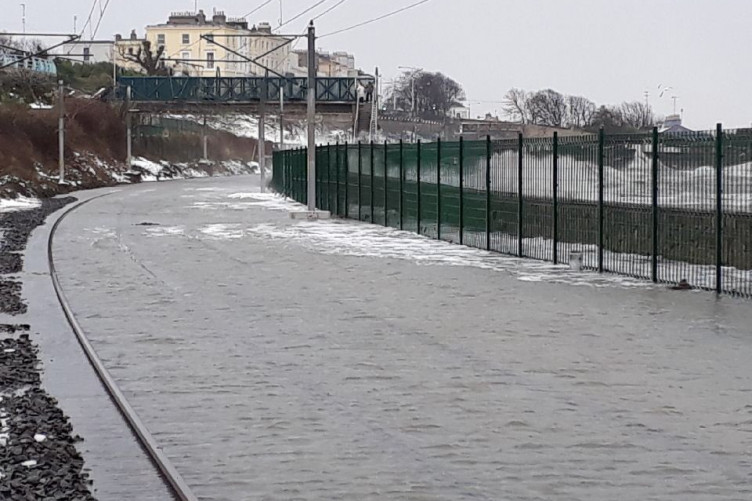
Dublin has been chosen as a ‘Coastal City Living Lab’ for ‘Smart Control Of the Climate Resilience in European Coastal Cities’ (SCORE), an EU funded project which will address the major challenges faced by extreme weather events, coastal erosion and rising sea levels in European Coastal Cities.
This €10 million project exemplifies the quadruple helix approach to collaboration with academics, local government councils, industry and citizens working together. Dún Laoghaire Rathdown County Council, through the Smart Sandyford research programme, will act as a test bed where new resilience measures can be developed and tested. This process will rapidly and sustainably enhance coastal city climate resilience through an Ecosystem-Based Approach (EBA). Dublin was selected as a pilot site because of the local expertise in testing innovative technologies and potential for digital twin technology. While the project has 28 partners from across Europe, the Dublin Coastal City Living Lab will be led by Dún-Laoghaire–Rathdown County Council, and Enable researchers based in University College Dublin.
The SCORE project will tackle specific challenges related to rising sea levels, coastal erosion and extreme weather events. The project goal is to design, develop, monitor and validate robust adaptation measures in coastal and low-lying areas, protecting them from increasing climate and sea level risks, i.e. coastal flooding and erosion, to enhance their overall long-term resilience.
The SCORE project was launched in July 2021, for a duration of four years. Working with 28 project partners we will begin to test smart technologies and hybrid Nature Based Solutions (NBS) and will examine their effectiveness. The project will explore the potential for these technologies to be deployed in other parts of Europe. SCORE will also enable Smart Instant Monitoring and Control of the Climate Resilience in European Coastal Cities through digital twin (a visual representation) solution prototypes, which can assist local and national governance in effective resilience management.
In summary the main objectives of the SCORE project in Dublin are to challenge resilience regarding:
- Coastal flooding: one of the two main public transport train lines, the ‘DART’, operates along the coast and is regularly flooded during storm events, putting the transportation system at great risk.
- Flooding of the coastal water pumping stations and water treatment plant exposes poor water quality in the area which is a danger to local swimmers and to the natural environment.
- The Dublin based Coastal City Living Lab will monitor coastal climate change and develop early warning systems at a local level via a network of low-cost smart sensors deployed through citizen science activities with local coastal communities.
